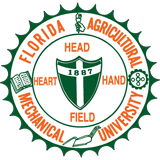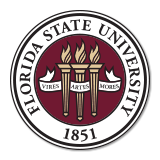
Taylor J. Davis isn’t one to shy away from the hard stuff. In fact, he almost seems to thrive on the grueling pace of engineering education. On May 4, he leaves the FAMU-FSU College of Engineering with dual degrees in mechanical and electrical engineering, an accomplishment very few even attempt.
He’s also leaving with a working model for a hydroelectric generator, a unique project that embodies Davis’ passion for mechanics and the environment and may just be the key to his future.
It’s been a long six years of higher education for Davis, who started his college career as a business major at Florida State University. After that first year studying economics and math, he wondered if he should follow his desire to develop renewable energy resources. Then again, he’d never really forgotten his childhood dream of getting into a racecar. Was NASCAR or solar power his dream career?
Davis is the son of a mechanic, so he gets the love of mechanical engineering naturally. But he also has a passion for the environment and protecting Mother Earth, which is part of what drove him to pursue the electrical engineering degree.
“I have a very strong love for the planet and the environment and really wanted to protect that,” Davis explains.
During his pre-engineering classes, Davis became interested in the fundamentals of engineering and how they have played a part in creating our civilization. In his view, the electrical and mechanical disciplines are two-thirds of what he calls the “foundations of engineering.” Chemical engineering, the third of his pillars, was not something he enjoyed studying.
As a double engineering major, Davis carried a class load of between 15-19 credit hours per semester for five years and three summers—with only a handful of weeks off. The hardest part, he admits, was the mental focus needed to keep up with classes, projects and studying.
“My grades aren’t perfect,” he admits. “But I’ve maintained an average above 3.0 through to graduation.”

For Davis, the most rewarding product of his engineering education was testing his senior engineering design team’s hydroelectric generator—and getting the wave forms they expected.
“We were able to design and manufacture a hydroelectric generator that works in oceans or rivers,” he says. “We designed the major electrical components of the system and the mechanisms inside the generator…I can truly say that I understand every aspect of the project, and that makes me proud.”
This hydroelectric generator is novel in its approach and Davis, with another member of the original team, is working on building an actual system that can be used to generate power. But money doesn’t motivate them to start their own product development company. Instead it’s about having a viable, profitable, manageable power system that can replace current sources of energy to protect our fragile environment. In five years, they envision launching a large-scale generator to deploy into the Gulf Stream—a floating power plant.
To this end, Davis isn’t seriously considering any job offers yet. He has the entrepreneurial spirit and more ideas to develop, including an electric vehicle and others that he and his partners may pursue.
“During my time in college I learned that I can do anything I set my mind to,” he says. “I just have to really, really want it.”

